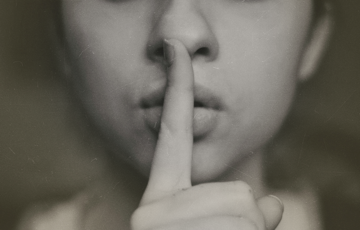Hoarseness - What to do?
Whether it's from talking too much or just bad luck - hoarseness can affect anyone. What can you do to get your voice going again quickly?
Read more
, lecturers, educators, singers, actors, presenters, call centre staff, etc. are particularly affected. For these professions, intensive and regular voice care is obligatory.

There are simple and helpful tricks for keeping your voice fit and maintaining it in the long term so that you can master all the challenges of (professional) life without sounding hoarse or brittle. "When you stand in front of a class of 25 to 30 students who sometimes want to talk about something completely different from what you want to talk about, you can imagine what my vocal cords have to do every day. I am grateful for any aid that relieves the strain on my voice.
As soon as I notice that my mouth is getting dry and I find it increasingly difficult to speak, I immediately take a Grether's Pastille. When I speak, I hide it in my cheek pocket, where it then dissolves very slowly. The pleasant effect and the fruity taste accompany me through the day. During the break, I then treat myself to a hot tea. That way I don't get hoarse in the first place."
As soon as I notice that my mouth is getting dry, and I find it increasingly difficult to speak, I immediately take a Grether's Pastille.
Peter Zeindel, primary school teacher and enthusiastic Grether's customerWhen you have an appointment or performance, you should give your voice a short warm-up programme to prepare it optimally for its use. Just a few minutes are enough for this. First, you should regulate your breathing. To do this, take several conscious and deep breaths. When exhaling through the nose, you can exercise the vocal cords with humming and buzzing sounds. To make your voice sound good and full, you need a relaxed jaw. Press your palms beneath your cheekbones and massage them in a circular clockwise motion while keeping your mouth open. Yawning, shaking your head and grimacing also help to relax the jaw. Finally, make your whole body vibrate with buzzing sounds. Then tap your palms on your chest and make U and A sounds. All exercises should be performed in a relaxed and easy-going manner.
Your larynx needs regular fluids when under stress to keep it supple. Ideally, you should always have a drink handy in front of you. If this is not possible, always make sure to hydrate before and after your performance. Low-irritant and especially warm drinks such as water (still / non-carbonated) and herbal teas are best. Cold drinks can cause the vocal cords to tighten. You should also avoid milk, as it has a mucus-causing effect.
Your voice needs oxygen. A sufficient supply of fresh air is good for your respiratory organs and ensures more concentration, stamina and energy. However, avoid draughts at all costs, especially when using air conditioning. As a preventive measure, you should always have a scarf or a shawl with you - even in summer.
Take small breaks to regularly enjoy Grether's soft pastilles. With its all-natural ingredients, it provides a soothing sensation in the mouth and throat, especially at the first signs of dry mouth and hoarseness.
Useful tips & tricks for the health of your voice

Whether it's from talking too much or just bad luck - hoarseness can affect anyone. What can you do to get your voice going again quickly?
Read more
A precious liquid - saliva.
Read more
Adults usually go through a cold up to three times a year with the typical features of cough, cold and sore throat.
Read more